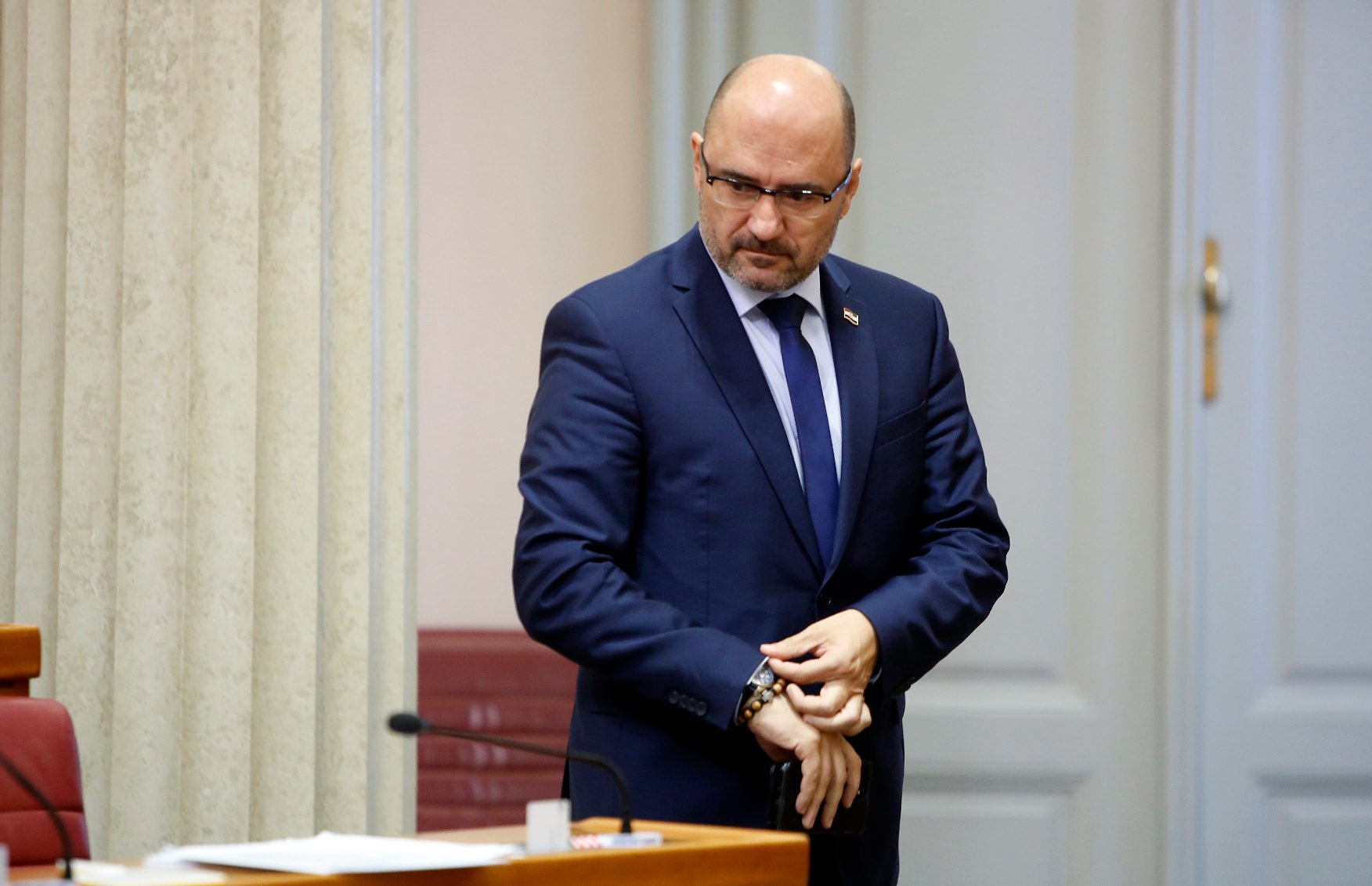
Witnesses who had pointed at Brkić during police questioning changed their minds by the time they appeared before the investigating judge. The judge had no choice but to rule that, "upon hearing the suspects ... there is neither sufficient evidence nor testimony of witnesses that could result in new [judicial steps]". The case file is "currently not at the Municipal State Attorney's office", said Chief State Attorney Dražen Jelenić on Thursday. He did promise, however, to try to "reconstruct the case and make a decision".
This is the gist of the extraordinary Thursday session of the parliamentary Internal Affairs and National Security Committee ‒ held behind closed doors ‒ which tried to find out if the national security system had been compromised, whether the confidential data collection methods have been blown, and whether abuse of power could be ascertained in the case.
Bad apples in the basket
Brkić is normally a member of the Committee, but abstained from the session. All the other invited officials were there: Director of the Security and Intelligence Agency (SOA), Director of Police, and representatives of the National Security Council, the State's Attorney Office (DORH) and the Operational and Technical Center for Surveillance of Telecommunications.
DORH chief Jelenić, whom the press expected to give a statement on the scandal surrounding Brkić for days, said that DORH had indeed filed a request in 2011 with the investigating judge of the County Court in Zagreb for questioning of certain people as a witnesses in the case, based on the information it possessed back then.
"The witnesses were questioned", he said. "They were the people who had given the police informal information [about the case] before, [but] did not repeat that information during the questioning. This means that there are no charges. Informally given information cannot be used as evidence in criminal proceedings. The [witnesses] refuted [the statements] they had previously given to the police informally."
Jelenić "could not confirm" whether Milijan Brkić's name had been mentioned in the official police documentation. "I can just say that the persons whose informal statements [were the basis for] action did not reiterate them before the judge", he said.
It is not clear whether the investigation stopped at that point. "In order to answer that question", said Jelenić, "we will try to reconstruct the case file." Reconstruction is necessary because the case file is not at the Office of the Municipal State Attorneys, where it was supposed to be, at the moment. According to Jelenić, "The Municipal Office will make its decision [on further steps in the case] after the reconstruction."
He does not think that the leaks of the data from the system are frequent. "We have reacted to such occurrences every three to four years", he said. "Nine police officers have been indicted so far. If you ask me, the system works in a satisfactory manner. Of course, there are bad apples in any basket, but the system is capable of recognizing them, and raises indictments against them then whenever there is evidence [of malfeasance]." He maintains there was no hushing up of the case in 2011.
Further moves
Parliamentary Committee Chairman Ranko Ostojić asked the invited officials to submit written reports. Once he has them, he will decide on further moves. He explained that three procedures were under way: "One, which will determine how the 2011 file was lost, is at the DORH. It does not affect the police [investigation] that will examine all the participants who participated in the 'SMS affair' [the faxe text messages scandal]. Whoever knew about the secret [surveillance] will be questioned, even if it is the Chief State Attorney himself. The third procedure concerns the leaks of information from the police, including those in the most recent events. I will not accept the claim that there was no hush-up until I get written reports."
The Municipal Office of the State Attorney in Zagreb announced on Thursday that it had decided to try to rebuild its missing file.
It was not at DORH
It explains that the file has not vanished from the central DORH building in Gajeva street, but from the Municipal Office. "On October 3, 2018, the Municipal State Attorney at the Municipal ... Office in Zagreb issued the decision on the reconstruction of the case file pursuant to Article 173. of the Rules of Procedure of the Office of the State Attorney on the basis of data from registers and ancillary books and obtaining documentation found at the courts, internal affairs institutions, parties [in legal processes] or other subjects", says the release.
"The decision followed the finding that the 2011 file of the [Municipal Office] in Zagreb of the case against an unknown perpetrator was missing, possibly mislaid in the moving [of the Office] to new premises, and is currently unavailable. (October 4, 2018). We emphasize that the Municipal State Attorney at the [Office in Zagreb] has requested copies of the files of the case from the County Court in Zagreb.
We point out that the case file has not disappeared at the DORH because it was never kept by the DORH, nor has DORH acted on that case.






Komentari
0